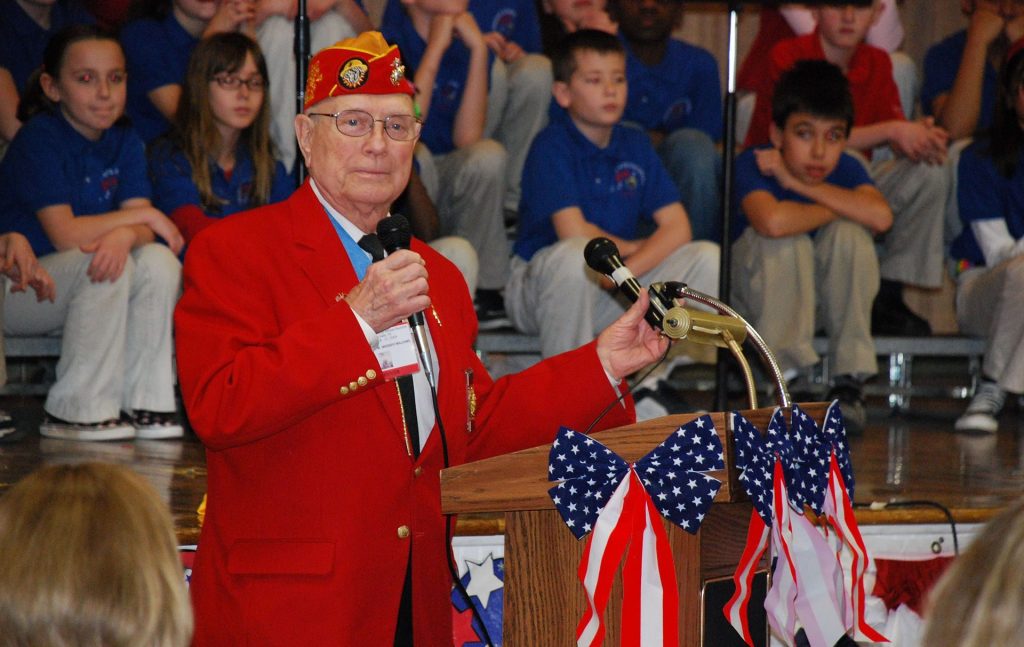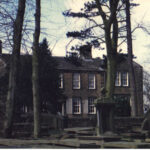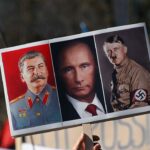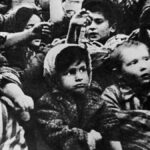Blog Post
Last of the Greatest
By Jonathon Van Maren
The last surviving World War II Medal of Honor recipient died at 3:15 a.m. on June 29, 2022, at the age of 98, surrounded by his family, who reported that Hershel Woodrow Williams—Woody, to those who knew him—“went home to be with the Lord.” The hero of Iwo Jima, Williams was one of the greatest members of the Greatest Generation. His wife Ruby had predeceased him in 2007 after 62 years of marriage. During the Second World War, Williams had focused on getting back to his fiancée in Fairmont, Virginia. Once again, he has.
I had the privilege of interviewing Williams before he died. An ordinary American farm boy from Quiet Dell, West Virginia, he described growing up during the Great Depression. Things were harder for his family than most after his father died of a heart attack when he was 11 and several siblings died during a flu pandemic. His earliest memories were of milking by hand, glass quart or pint bottles, and the huge blocks of ice necessary to keep everything from spoiling. The family car was a Model A Ford (and later a very classy Model T).
Woody joined the Civilian Conservation Corps in 1940 at age 16 (as did his brothers), earning a whopping $21 a month. He was with the CCC in Whitehall, Montana when the Japanese hit Pearl Harbor. Like so many other American boys, he tried to sign up right away despite his age. He needed parental permission and his mother refused to give it. He knew what he was volunteering for—during the early days of the war, he delivered death telegrams to Gold Star Families. He had to wait until he was 18, and in May 1943, after training in California, he shipped out for the Pacific. His brothers were already in Europe.
Woody’s first stop was Guadalcanal, which the Americans had taken in 1942. “We stayed for six months, and then we shipped out to be support for the Second Marine Division—we were the Third—which was attacking Saipan,” he told me. “We were out in the ocean in case they needed more Marines. They didn’t.” It was on the beach on Guam that Woody first tasted combat. “It was probably one of the scariest moments of my time. We had to get off the boats out in the water, knee-high to waist-high, to wade ashore. The Japanese were shooting and dropping mortars on us. Once we got ashore we could start digging a foxhole or get behind something.”
When they left Guam for Iwo Jima, Woody and his fellow Marines had no idea where they were going until they were out on the ocean. “We had just gone 19 miles from coastline to coastline on Guam, and my squad, including me, couldn’t figure out why we would go take such a little place,” he recalled. “It was only 2.4 miles by five—it couldn’t be much of anything.” They were told they were a reserve unit and would probably be back on Guam in a week without disembarking. They had no intelligence on Iwo Jima and did not yet know that the island was crisscrossed by miles of tunnels and 22,000 waiting Japanese.
READ THE REST OF THIS COLUMN AT THE AMERICAN CONSERVATIVE








